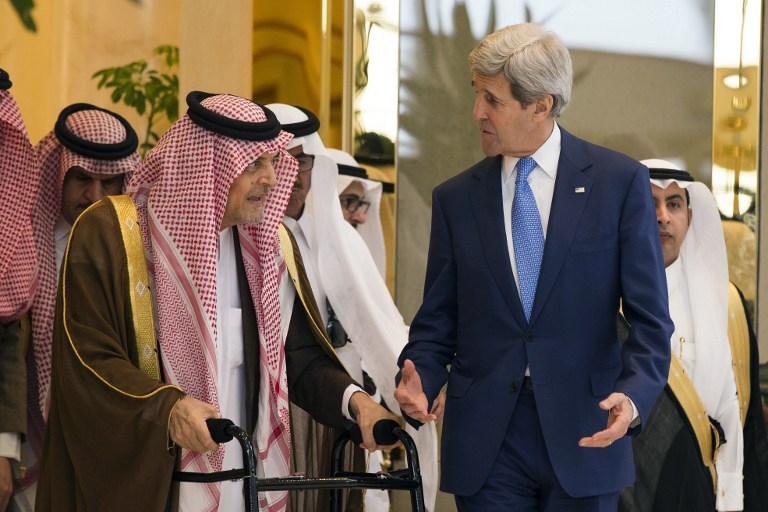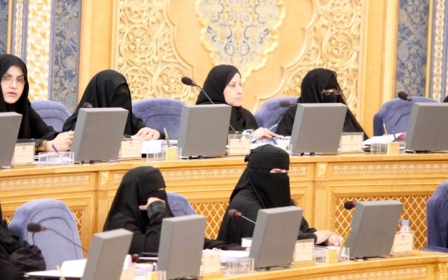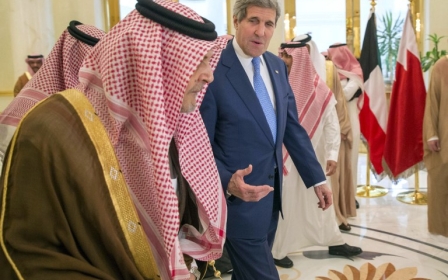Saudi top diplomat urges allies to face IS on the ground

Saudi Arabia's foreign minister on Thursday urged the US-led coalition conducting airstrikes against the Islamic State group (IS) in Syria and Iraq to wage a ground war against the militants.
The kingdom, part of that coalition, "stresses the need to provide the military means needed to face this challenge on the ground," Prince Saud al-Faisal said at a news conference with US Secretary of State John Kerry.
Several Arab countries have joined the air campaign against IS.
President Barack Obama, anxious to avoid a drawn-out ground war, has backed an air campaign but ruled out deploying infantry.
The Saudi minister also warned of Iran's growing role in Iraq, accusing the Shiite-dominated Islamic republic of "taking over" the kingdom's Arab neighbour through its aid in the fight against IS.
"Tikrit is a prime example of what we are worried about. Iran is taking over the country," Faisal said of the late Iraqi dictator Saddam Hussein's hometown.
Kerry confirmed that the US had information that the commander of Iran's powerful Quds force, General Qassem Suleimani, was on the ground in Iraq aiding the offensive.
"Is General Suleimani – has he been on the ground, is he playing a role? The answer's yes," Kerry said.
"We've got information to that effect," he said, insisting, however, that the operation was Iraqi-led.
"Everybody has known that there are some movement of Iranian forces, both in and out of the northern part of Iraq, who have been engaged in fighting since the very beginning. But it is not coordinated. We are not coordinating with them."
The US military's top officer, General Martin Dempsey, said on Tuesday that Iran's help in an Iraqi offensive to recapture Tikrit could be "a positive thing" providing that it did not fuel added sectarianism.
On Thursday, the United Nations said military operations aimed at retaking Tikrit from IS have caused about 28,000 people to flee their homes.
"We have urged all Iraqi forces to avoid and prevent the abuse to civilians of any kind of activity that violates international norms, fuels sectarian fears, and promotes sectarian divides, and that includes Iran in terms of their activities," Kerry said.
About 30,000 Iraqi security force members and allied fighters launched an operation to retake Tikrit on Monday.
Sunni-dominated Saudi Arabia is wary of the ambitions of its arch-rival Iran across the Gulf.
New MEE newsletter: Jerusalem Dispatch
Sign up to get the latest insights and analysis on Israel-Palestine, alongside Turkey Unpacked and other MEE newsletters
Middle East Eye delivers independent and unrivalled coverage and analysis of the Middle East, North Africa and beyond. To learn more about republishing this content and the associated fees, please fill out this form. More about MEE can be found here.




